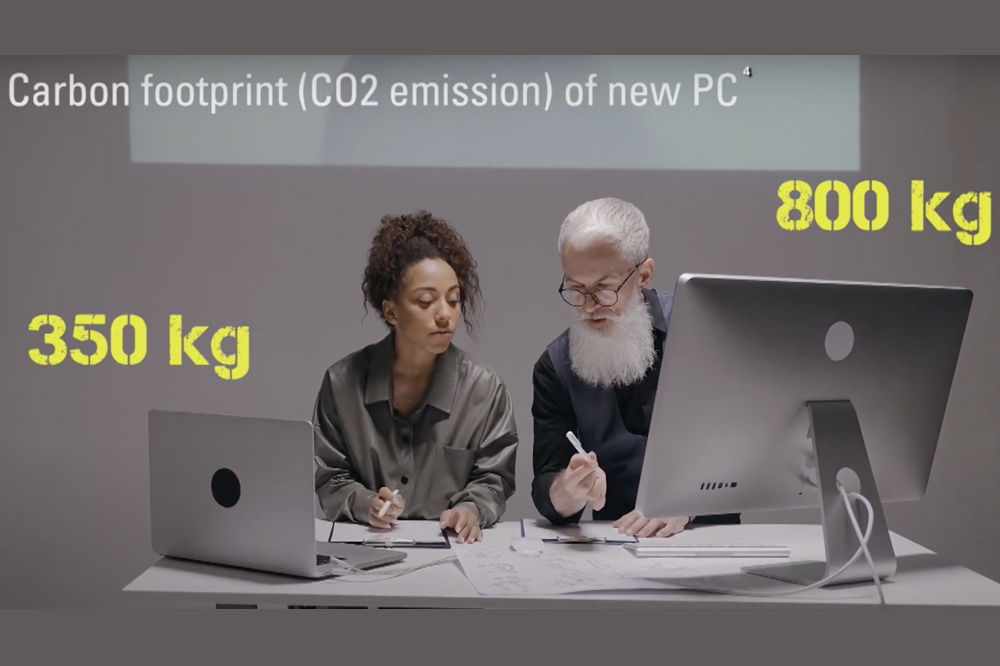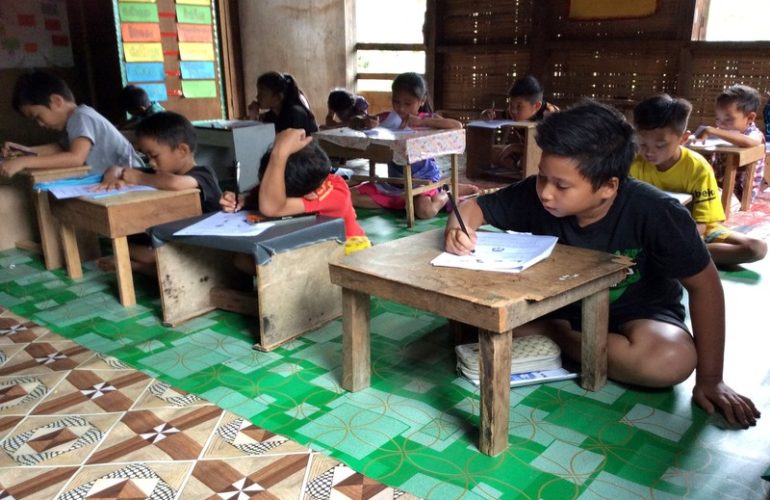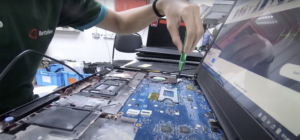
IT plays a central role in any organization and it’s only logical that a carbon reduction strategy begins with using remanufactured computers
The earth’s population is projected to reach 8.6 billion people by 2030. There is an urgent need to provide enough food, water and energy to power this growing demand in the next decade and beyond. This is simply not going to happen unless we change the way we consume.
Today, atmospheric CO2 is at a higher level than at any point in the last 3 million years. Humans are injecting more CO2 into the atmosphere at one of the fastest rates ever. The information & communication technology sector’s global share of greenhouse gas emission stood at 4% in 2020, and is projected to rise to 14% in 2040.
Production and use of a new laptop and desktop emit about 350 kg and 800 kg of CO2 respectively. In 2019, only 17% out of 54 million metric tonnes of e-waste generated was properly recycled. The balance 83% was either dumped into landfills or incinerated. We owe humanity’s progress in the past century to technology, but it appears our soaring IT-related carbon footprint due to unsustainable consumption is holding us back. Is IT working for us, or against us?
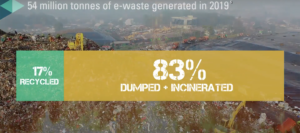
Out of 54 million tonnes of e-waste generated in 2019, only 17% is recycled properly
With this in mind, there’s growing realisation that using the latest and greatest in IT is never necessary. Using remanufactured computers helps reduce as much as 75% carbon emission. At Rentwise, the balance 25% carbon is offset via our reforestation initiative, thereby allowing us to be recognised as the first carbon neutral computer in Malaysia.
As the world gears toward achieving Net Zero by 2050, decarbonisation in all sectors becomes a priority. To make this a reality, we need technology to fight climate change. Today, organisations are not only under increasing threat from business-disrupting weather patterns but also from punitive government policies that limit their business opportunities and growth if decarbonisation is not observed.
IT is an indispensable tool that plays a central role in running any business today. Therefore, it is only logical that a sound carbon reduction strategy begins with using remanufactured computers. Essentially, using remanufactured computers by Rentwise is the first step towards improving an organisation’s ESG profile.
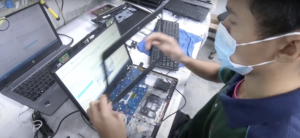
Using Rentwise’s remanufactured computers is the quickest, simplest and most cost-effective way to improve an organization’s ESG profile
Founded in 2001, Rentwise’s circular business model has served more than 200 medium to large corporations in Malaysia and Singapore. A pioneer remanufacturer of IT equipment in Malaysia, Rentwise has to date reduced over 280 million kg of CO2 emission from more than 378,000 used computers repurposed. As an award winning, accredited and leading independent lessor for end-to-end green IT infrastructure, we take great pride in our strict 16-step remanufacturing process. This process has enabled us to extend the use of a PC by up to 3 cycles, thereby maintaining product utility at its highest value over an average lifespan of 10 years.
As a registered social enterprise and signatory member of the United Nations Global Compact, aligned to the United Nations Sustainable Development Goals 4, 12, 13 & 17, Rentwise is especially committed to providing equitable access to digital learning among underprivileged school children. Our digital learning empowerment program has seen more than 100 schools with over 31,000 students benefitting from donated remanufactured computers in a joint collaborative effort with our project partners, many of whom are also our clients. This is timely especially in light of the pandemic where remote learning has become the norm.
We owe it to our future generation to do better. Green IT represents the power to control and pivot towards a sustainable future and achieve our best.
Let us help you become the ground zero for change towards net zero.
Together, let’s seek to ensure sustainable computing for a sustainable planet.
References:
- https://www.un.org/en/desa/world-population-projected-reach-98-billion-2050-and-112-billion-2100
- https://www.theatlantic.com/magazine/archive/2021/03/extreme-climate-change-history/617793/
- https://www.greencarcongress.com/2018/03/20180306-mcmaster.html
- https://www.dell.com/en-th/dt/corporate/social-impact/advancing-sustainability/sustainable-products-and-services/product-carbon-footprints.htm#tab0=0
- https://css.umich.edu/factsheets/green-IT-factsheet
- https://www.lenovo.com/us/en/compliance/eco-declaration/




